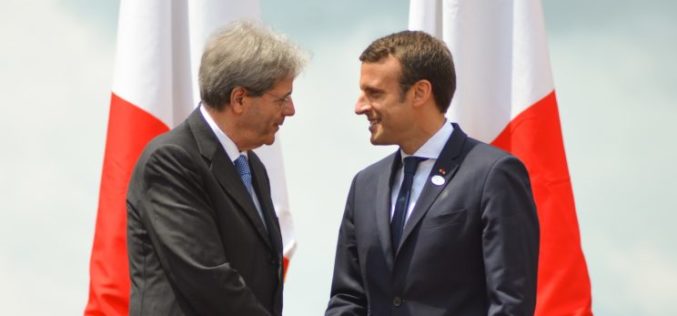Archive
Fortress Europe? Protectionism and populism raise political risk in the European Union
Is Europe starting to close its doors to foreign competitors? Recent calls to establish “European Champions” in the wake of the U.S.-led trade wars and an attempt to invigorate flagging economies suggest that Europe is starting to pull up the drawbridge of Fortress Europe. Increasing populism throughout the EU, especially in core economic leaders such as Germany and France, are driving political leaders away from globalist principles and towards a more nationalistic economic strategy. As formerly staunch globalists leave center stage and attacks are made on the existing competition structure in the EU, what political risk might foreign firms face in Europe in the near and mid-term future as these political and economic protectionist movements play out?
France and Italy: Growing tensions in Europe
France recalled its ambassador to Rome this month, for the first time since 1940, in a move which exemplifies a deepening diplomatic rift with Italy. Discord has been rumbling for months. This article explains why recent relations have become strained and how they could play out during 2019.
Nigeria: soon to be Africa’s largest democracy?
Previous elections in Nigeria, Africa’s most populous country, have been plagued by violence and election fraud. Amidst a backdrop of heightened insecurity fuelled by political tensions in the region, Saturday’s election will be decisive in defining Nigeria’s role on the global stage. They will also be fundamental in determining investor confidence and characterising Africa’s relationship with democracy.
Japan: military expansion and instability in East Asia
With an incursive China, relaxing American input and an ambiguous Trump-Kim relationship, Japan bolsters its military capabilities to face uncertain times.
Lebanon: Impact of the Syrian war’s next stage
The Syrian Civil war is nearing its end game. This article, part four of a five-part series on the regional impact of this news, examines the current economic obstacles and opportunities for Lebanon.
Irish backstop: PM risks future of the Union
New assurances regarding the backstop will likely secure Brexit, but it would also inflame nationalist passions in Ireland which would threaten the territorial integrity of the United Kingdom
Qatar: Forging Alliances in Lebanon
Following the Arab Economic and Social Development Summit in Lebanon, Qatar announced its plans to buy $500 million in government bonds to support Lebanon’s struggling economy. However, this is likely a strategic move for Qatar to increase its soft power in the country, as Qatar seeks to challenge the influence of Lebanon’s long-time financial patron, Saudi Arabia.
Greece ends Macedonia name dispute
On 25 January, the Greek Parliament ratified the Prespa Agreement, thereby ending a 28-year-long dispute over the name of Greece’s northern neighbour. This heralds a new start in Greek-Macedonian relations, but it also has important international implications, including for the NATO and Russia.
Brexit effect on security in the UK
The downstream effects of Brexit, and particularly a no-deal Brexit, have harrowing consequences for the safety of Britons. If there is no deal on 29 March, the UK’s counterterrorism and policing operations risk being significantly burdened by borders and hindered by restrictions on intelligence sharing.
The India-Taiwan Treaty: India’s gateway to a knowledge economy
India and Taiwan’s bilateral investment treaty presents a great insensitive for India to develop its human capital and transition into a knowledge economy.











